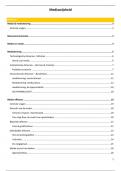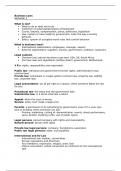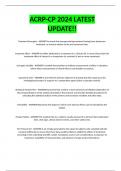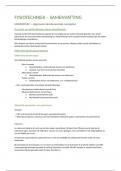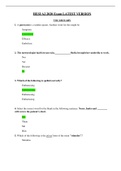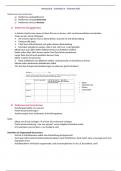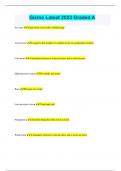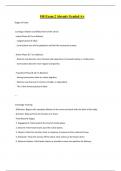- How did Alan Turing come to be involved in the Second World War?
Alan Mathison Turing was born in London England on June 23, 1912. Alan Turing’s
parents worked in the Indian Civil Service, so they left him and his older brother in the hands
of Colonel Ward and his wife.1 Alan was a math prodigy and attended the Sherborne
Boarding School where he met his first love and fellow math enthusiast, Christopher
Morcom.2 After Christopher passed away in 1930, Alan Turing enrolled at Kings College in
1931, and studied mathematics and earned his Ph.D. at Princeton in 1938.3 Back in his time
at Kings College, Turing studied the Entscheidungsproblem.4 While studying the problem he
thought of the idea for the “Turing Machine”, which became the basis for the modern
computer. Alan grew up with parents who worked for the government so he joined the
Government Code and Cypher School (GCCS). World War II came about and Alan stayed
with the GCCS. He worked on cracking military and government codes sent by the Axis that
had been intercepted. The Germans used a machine called the “Enigma” to encrypt
messages, the British had a version of the machine that attempted to crack the codes.
However, the codes changed every day and without the cypher key, the machine was almost
rendered useless.5 This is where Alan Turing became vital to the war effort. He was tasked
with creating a machine that could crack the day’s cipher instantaneously.
- Alan Turing’s personality and traits.
Alan Turing was a brilliant man. He was well educated at the Sherborne Boarding school and
later received his Ph.D. in mathematics at Princeton. He was very intelligent and logical. His
personality was widely shaped by his troubled childhood. His parents were not in the picture
till later and he lived in a strict military household. This military-style of life was not his
thing. He preferred math and literature compared to sports and fighting. During his time
living with Colonel Ward, he was bellowed at for his disinterest in “manly” things.6 Because
of harsh treatment at home and his difficulty in school, it sculpted him into being shy and
quirky. Most notably, Turing was passionate about the people in his life. This passion can be
seen towards his first love and best friend Christopher Morcom. When Christopher passed
away from tuberculosis, Alan Turing poured his passion into writing “Nature of Spirit”,
which he tried to use quantum mechanics to prove the existence of ghosts.7 His passion also
translated into his mathematics. He had the drive to solve and create things others could not.
1
Alan Turing: The Enigma, YouTube (Biographics, 2019), https://www.youtube.com/watch?
v=UTmsSG8OW5M&t=321s.
2
“Alan Turing: The Enigma”.
3
Biography.com editors, “Alan Turing Biography,” The Biography (A&E Television Networks, April 2, 2014),
https://www.biography.com/scientist/alan-turing.
4
“Alan Turing: The Enigma”.
5
“Alan Turing: The Enigma”.
6
Andrew Hodges, “Alan Turing,” Mayhematics, accessed May 28, 2020,
https://www.mayhematics.com/b/turing_alan.htm.
7
Roger Highfield, “The Spirit of Alan Turing ,” Science Museum, June 21, 2012,
https://blog.sciencemuseum.org.uk/the-spirit-of-alan-turing/.
, Everyone told him the Turing machine would never work but he wanted to prove them
wrong, and he did.
- What role did Alan Turing play in World War II?
Alan Turing was a cryptanalysis for the Allies during the Second World War. He worked at
Bletchley Park in Hut 8 alongside his team of mathematical geniuses including Gordon
Welchman and Joan Clarke.8 Alan was engaged to Joan but called off the marriage after
admitting his homosexuality. During World War II, Germany used a machine called the
Enigma to encrypt messages. The Enigma appeared to look like a typewriter. Every day,
cryptologists would receive word on which position the plugboard and the rotors would be on
that day.9 The cryptologists would then type
the message on the Enigma machine. It
encrypted messages by “pressing a key on
the keyboard at the front which encrypted
this letter as another letter at the light board.
An electrical signal was sent from the key
through the plugboard on the front around
through the three sometimes four rotors on
the back and lit up a letter on the light
board”.10 The Polish already created a
version of the machine called the “bomba”,
which was able to originally crack Enigma
previous to World War II. Nonetheless, the
bomba took too long and the Germans
upgraded Enigma’s encryption at the
beginning of the Second World War. Alan
Turing and the Hut 8 team were tasked
Louise, Dade, How the Enigma Machine worked, 2006,
with creating a version of the bomba that https://www.scienceabc.com/innovation/the-imitation-
could decode messages swiftly. Turing was game-how-did-the-enigma-machine-work.html
able to develop a version of the machine
once he noticed a flaw in Enigma. This
machine was called the “bombe”. The Enigma encryption had a major flaw. Say you have the
word ‘HISTORY’, The ‘H’ in history will never be encrypted as the letter it actually is.11 To
crack that day’s code, you needed a phrase that was guaranteed to be in the message. For
8
IWM Staff, “How Alan Turing Cracked the Enigma Code,” Imperial War Museum, January 5, 2018,
https://www.iwm.org.uk/history/how-alan-turing-cracked-the-enigma-code.
9
How Did the Enigma Machine Work?, YouTube (Science Museum, 2019), https://www.youtube.com/watch?
v=CspaXNkC2ec.
10
“How Did the Enigma Machine Work?”
11
Ashish, “Cracking the Uncrackable: How Did Alan Turing and His Team Crack The Enigma Code?,” Science ABC,
December 27, 2015, https://www.scienceabc.com/innovation/cracking-the-uncrackable-how-did-alan-turing-and-
his-team-crack-the-enigma-code.html.

